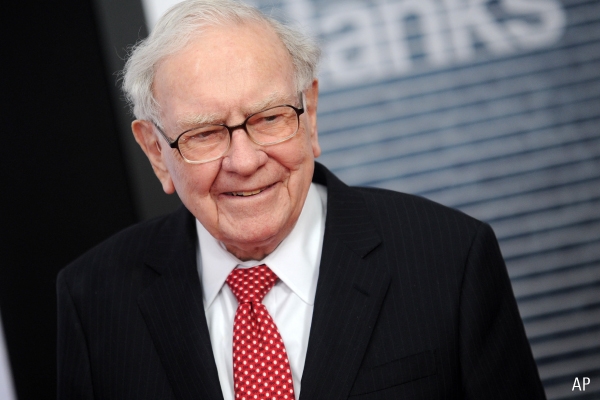Is Berkshire Hathaway’s Stock Undervalued?
Warren Buffett’s recent buying spree—including Occidental Petroleum, HP, and Alleghany—has barely dented the conglomerate’s cash balance.

Bulls Say
- Book value per share, which is a good proxy for measuring changes in Berkshire Hathaway's intrinsic value, increased at an estimated 18.7% compound annual rate during 1965-2021, compared with 10.5% for the S&P 500 TR index.
- Berkshire's stock performance has generally been solid, increasing at a compound annual rate of 13.0% for 2017-21 and 14.7% for 2012-21, compared with 18.5% and 16.6%, respectively, for the S&P 500 TR index.
- At the end of 2021, Berkshire had approximately $147 billion in insurance float. The cost of its float has been negative for much of the past two decades.
Bears Say
- Given its size, Berkshire's biggest long-term hurdle will be its ability to consistently find deals that not only add value but are large enough to be meaningful.
- Another issue is the longevity of chair and CEO Warren Buffett (who will turn 92 at the end of August) and vice chair Charlie Munger (who turned 98 in January).
- Berkshire's insurance business faces competitive and highly cyclical markets that occasionally produce large losses, and several of its noninsurance operations are economically sensitive and focused on U.S. markets.
Morningstar Analyst Gregg Warren Says
2020 was an extremely difficult year for Berkshire Hathaway BRK.A/BRK.B: Operating earnings declined nearly 10% and reported net earnings fell more than 40%. However, the company’s overall positioning improved as the back half of the year progressed. Berkshire saw an even more marked improvement in its insurance investment portfolio, as well as the operating results of its various subsidiaries, in 2021. We expect a return to more normalized levels of revenue growth and profitability in 2022 and 2023, with the Alleghany acquisition—which is set to close in the fourth quarter this year—additive to results in 2023.
We continue to view Berkshire’s decentralized business model, broad business diversification, cash-generating capabilities, and unmatched balance sheet strength as true differentiators. These advantages have been overshadowed by an ever-expanding cash balance, which is earning next to nothing in a near-zero interest-rate environment. However, we believe the company has finally hit a nexus where it is far more focused on reducing its cash hoard through stock and bond investments and share repurchases. In the past eight calendar quarters, Berkshire has repurchased $52 billion worth of its common stock, eliminating around 9.1% of its total Class A equivalent shares outstanding, and it seems committed to matching our expectations for $6 billion-$8 billion in quarterly share repurchases during 2022-26.
Berkshire started 2022 with an estimated $112 billion in dry powder that could be dedicated to investments, acquisitions, and share repurchases. While the year so far has proved to be unique, with Berkshire building up equity stakes in Occidental Petroleum and HP for $11 billion collectively and committing another $11.6 billion to the acquisition of Alleghany, these moves still won’t deplete full-year free cash flow. This means that Berkshire’s cash balance (absent a commitment to continued share repurchases) is likely to be higher at the end of the year than it was at the beginning.
Key Proprietary Morningstar Metrics
Fair Value Estimate: $550,000 (Class A)/$367 (Class B) Star Rating: 3 Stars Economic Moat Rating: Wide Moat Trend Rating: Stable
To read the full analyst report for Berkshire Hathaway and 1,500 other stocks, start your free 14-day trial of Morningstar Premium. Learn more about how to read a Morningstar Stock Analyst report here.
The author or authors do not own shares in any securities mentioned in this article. Find out about Morningstar’s editorial policies.


/cloudfront-us-east-1.images.arcpublishing.com/morningstar/347BSP2KJNBCLKVD7DGXSFLDLU.jpg)
/cloudfront-us-east-1.images.arcpublishing.com/morningstar/TP6GAISC4JE65KVOI3YEE34HGU.jpg)
/d10o6nnig0wrdw.cloudfront.net/04-29-2024/t_d0e8253d77de4af9ae68caf7e502e1bf_name_file_960x540_1600_v4_.jpg)